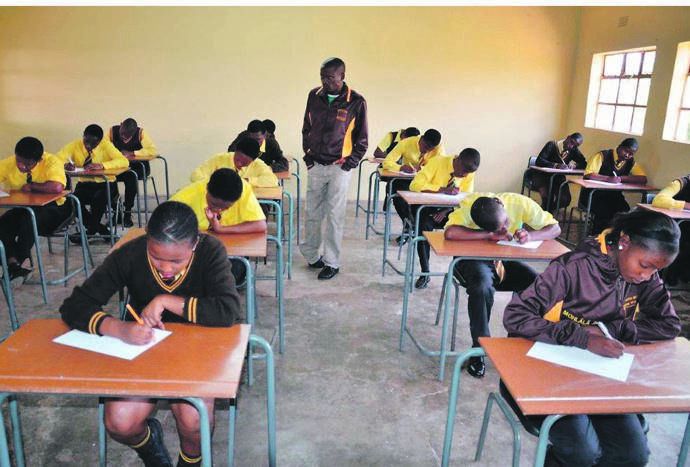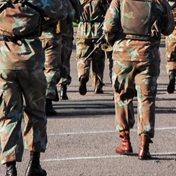
Grade 12 pupils should be allowed to use the results of the September trial exams to apply for admission to universities next year.
This is the proposal of Professor Michael le Cordeur, head of curriculum studies at Stellenbosch University.
Usually, pupils use the mid-year examination results to apply for admission to universities and the September trial exams are normally used to gauge their performance ahead of the final matric exams.
But Le Cordeur thinks because of the Covid-19 coronavirus pandemic, provincial education departments and the department of basic education should reschedule the June exams.
“I don’t think the June exams will be viable or fair to all. We will need a plan B. Everybody must get an equal opportunity to catch up, hence to use the September exam as the main qualifying exam for entrance into higher education will not only be more fair, it will also give everybody a chance to catch up.”
To minimise the impact of falling behind the syllabus, Le Cordeur said schools, which did not have access to online platforms to conduct lessons remotely, should consider using other social media platforms such as WhatsApp.
“Most pupils and students have cellphones and WhatsApp is really cheap. We might just find pupils’ cellphones, for so long described as a thorn in the flesh of parents and teachers, to be our saving grace.
“Pupils and students should form WhatsApp groups, to share learning materials, discuss topics and learn from one another.
“I have formed a WhatsApp group with my students at Stellenbosch University. We share, discuss and give advice. It makes for a wonderful creative learning experience.”
He said departments and universities should assist students and pupils with data and airtime on their phones during this period.
The professor said it was time for the main service providers of cellphones and data in the country to come to the party and help the students this year.
“They can be of great help by, for instance, sponsoring the matric pupils with airtime and data. They owe us that much. They must keep an open mind and be receptive to new ideas and creative suggestions.
“Now is the time to find new ways to educate and to learn. Now is the time to discover that the classroom is much bigger than the four walls and that there are many more teachers out there – that is parents and nongovernmental organisations which are more than willing to assist if only the education management [officials] approach people and ask for help,” Le Cordeur said.
“We are all in this together and we all want our children to prosper. We all must do our best to support the president in his quest to find the best solutions for the country.”
He said there would be some impact on the academic year for schools and universities after they were instructed by government to close early and the national lockdown aimed at minimising transmissions of Covid-19.
“In my opinion it will be a longer [recess] for various reasons ... It’s also became clear that students and pupils who have access to online platforms stand a better chance of passing or are ahead in terms of curriculum or syllabus coverage than those who do not.
“To continue with [June] exams as per usual will thus be unfair to many, especially those from poor communities,” he said.
April 20 has become the “planning horizon” for universities.
Leading up to that date, these institutions will reassess the effects of the early recess, which was brought on by the national lockdown implemented by government in an effort to curb Covid-19 coronavirus infections.
The date of April 20 was revealed by Professor Ahmed Bawa, chief executive of Universities SA (USAf), to City Press this week.
USAf is an organisation representing the vice-chancellors of the country’s 26 universities.
Bawa said universities were not in a position at this stage to plot a new timetable in the midst of the lockdown.
“We are using April 20 as a planning horizon. It will provide us with an opportunity to plan as the context evolves.
What the universities are committed to is completing the 2020 academic year, even if this means making major changes to the academic calendar,” Bawa said.
He said that universities were collaborating and that USAf was playing a role in galvanising resources to ensure that institutions would complete the academic year as effectively as possible.
“We are also working with other organisations that have been working on alternative delivery mechanisms for academic programmes.
Our biggest challenge at the moment is to get the mobile telecommunications companies, such as Vodacom, MTN and Telkom, to make zero-rated data available to students who cannot afford data.
If they made this move, that would be a fundamental game changer for the students and the universities,” Bawa said.
He said that if the lockdown proved instrumental in bringing down the Covid-19 infection rate dramatically, then USAf would work towards reopening universities at that point.
“However, from all we have seen from other parts of the world, our scientists indicate that this is unlikely. We will, before April 20, reassess the situation,” he said.
Bawa confirmed that USAf formed part of the task team announced last week – and led by Buti Manamela, the deputy minister of higher education, science and innovation – as part of efforts to combat Covid-19.
However, he said, the task team had yet to meet.
Ishmael Mnisi, spokesperson for Minister of Higher Education, Science and Information Blade Nzimande, said this was because the task team was only announced on Thursday.
The team comprises USAf, the SA College Principals Organisation, the SA Union of Students, labour unions and health experts.
It is set to make appropriate information available to institutions of higher learning and develop protocol guidelines for them.
Nzimande’s department has also requested that universities and public colleges complete an update survey of the IT capabilities they have with regard to offering online courses.




 Publications
Publications
 Partners
Partners









